February 14 stands as one of history’s most eventful days, witnessing the rise and fall of empires, groundbreaking discoveries, and moments that shaped our modern world across centuries of human achievement.

Politics and Government Events on February 14
1903 – United States Department of Commerce and Labor Established
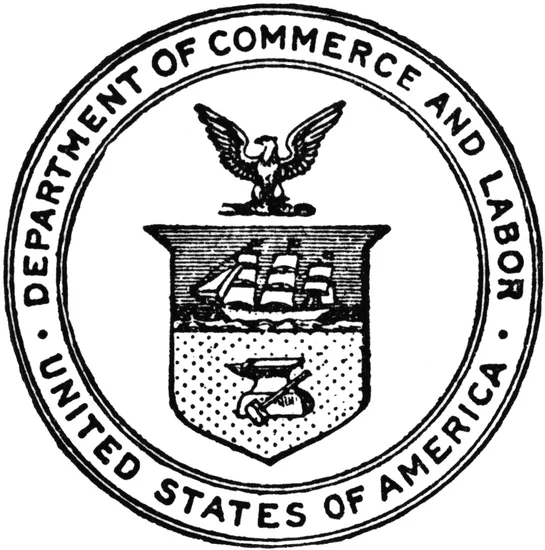
President Theodore Roosevelt signed legislation creating the Department of Commerce and Labor, consolidating federal oversight of American industry and workforce. This new cabinet-level department reflected the growing complexity of the nation’s industrial economy.
The department would later split into separate Commerce and Labor departments in 1913. This reorganization marked a crucial step in federal government expansion during the Progressive Era.
1912 – Arizona Achieves Statehood
Arizona became the 48th state of the United States, completing the contiguous continental territory. President William Howard Taft signed the proclamation after Arizona’s constitutional convention resolved territorial disputes.
The admission marked the end of frontier governance in the American Southwest. Arizona’s statehood represented the final chapter in westward expansion across the continental United States.
1949 – Israeli Knesset Convenes
The Knesset held its first session in Jerusalem, establishing Israel’s parliamentary democracy. Representatives from across the new nation gathered to begin crafting legislation for the young state.
This historic assembly marked Israel’s transition from provisional government to formal democratic institutions. The Knesset’s formation strengthened Israel’s claim to legitimacy among world nations.
1946 – Bank of England Nationalized
The British government formally nationalized the Bank of England under the Bank of England Act. This legislation transferred ownership from private shareholders to the British Treasury, fundamentally altering monetary policy control.
The nationalization reflected post-war socialist policies of the Attlee government. This change gave the government direct control over Britain’s central banking system and monetary policy.
2018 – Jacob Zuma Resigns as South African President

Jacob Zuma stepped down as President of South Africa amid mounting corruption allegations and party pressure. His resignation followed intense political negotiations within the ruling African National Congress.
The resignation marked a significant moment in South African politics since apartheid’s end. Zuma’s departure opened the door for political reform and anti-corruption initiatives.
2011 – Bahraini Uprising Begins

Pro-democracy protesters launched a “Day of Rage” in Bahrain, joining the broader Arab Spring movement. Thousands of citizens demanded political reforms and greater representation in government.
The uprising challenged the ruling Al Khalifa family’s authority and sparked regional tensions. International attention focused on Bahrain’s strategic importance in the Persian Gulf region.
Military and Naval History on February 14
1912 – U.S. Navy Commissions First Diesel Submarines
The United States Navy officially commissioned its first class of diesel-powered submarines, revolutionizing underwater warfare capabilities. These vessels offered improved range and reliability compared to earlier gasoline-powered designs.
The diesel submarines represented a major technological advancement in naval warfare. Their enhanced endurance and safety features would influence submarine design for decades to come.
1939 – German Battleship Bismarck Launched
Nazi Germany launched the battleship Bismarck, one of the most powerful warships ever constructed. The massive vessel represented the pinnacle of German naval engineering and posed a significant threat to Allied shipping.
The Bismarck’s launch demonstrated Germany’s naval ambitions and technological capabilities. This formidable warship would later become infamous for its brief but dramatic career in World War II.
1943 – Rostov-on-Don Liberated
Soviet forces successfully liberated the strategic city of Rostov-on-Don from German occupation. The victory marked a significant advance in the Red Army’s westward offensive across southern Russia.
This liberation opened crucial supply lines and demonstrated Soviet military resurgence. The city’s recapture boosted Soviet morale and strengthened their position in the region.
1945 – Dresden Bombing Begins
Allied forces launched the devastating bombing campaign against Dresden, Germany. British Royal Air Force and United States Army Air Forces aircraft began systematic fire-bombing of the historic city.
The bombing campaign would become one of World War II’s most controversial operations. The destruction of Dresden raised enduring questions about strategic bombing ethics and civilian casualties.
1919 – Polish-Soviet War Begins
Military hostilities erupted between Poland and Soviet Russia, marking the beginning of the Polish-Soviet War. This conflict would determine the eastern boundaries of the newly independent Polish state.
The war’s outcome would reshape Eastern European borders and influence regional politics for decades. Both nations fought to establish their spheres of influence in the disputed territories.
Science and Discovery Milestones on February 14
1961 – Lawrencium Synthesized
Scientists at the University of California successfully synthesized element 103, Lawrencium, for the first time. This achievement expanded the periodic table and advanced understanding of superheavy elements.
The discovery represented a triumph of nuclear physics and particle acceleration technology. Lawrencium’s synthesis opened new frontiers in atomic research and element creation.
1990 – Voyager 1 Captures Pale Blue Dot
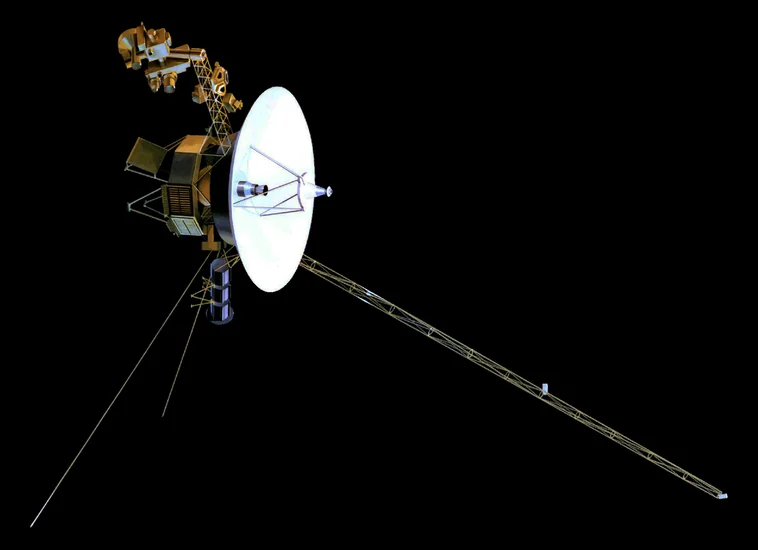
The Voyager 1 spacecraft photographed Earth from a record distance of 3.7 billion miles away. This iconic image, later named “Pale Blue Dot,” showed Earth as a tiny speck in the cosmic void.
The photograph profoundly influenced humanity’s perspective on our planet’s place in the universe. Carl Sagan’s subsequent reflections on the image became legendary in scientific literature.
2000 – NEAR Shoemaker Orbits Asteroid

NASA’s NEAR Shoemaker spacecraft successfully entered orbit around asteroid 433 Eros. This historic achievement marked the first time a spacecraft had orbited an asteroid.
The mission provided unprecedented close-up observations of an asteroid’s composition and structure. These findings advanced understanding of solar system formation and asteroid characteristics.
1918 – Russia Adopts Gregorian Calendar
The Russian Soviet Federative Socialist Republic officially adopted the Gregorian calendar, abandoning the Julian calendar system. This change aligned Russia with international timekeeping standards.
The calendar reform eliminated the thirteen-day difference between Russian and Western dates. This modernization facilitated international communication and diplomatic relations.
Cultural and Arts Events on February 14
1929 – Saint Valentine’s Day Massacre
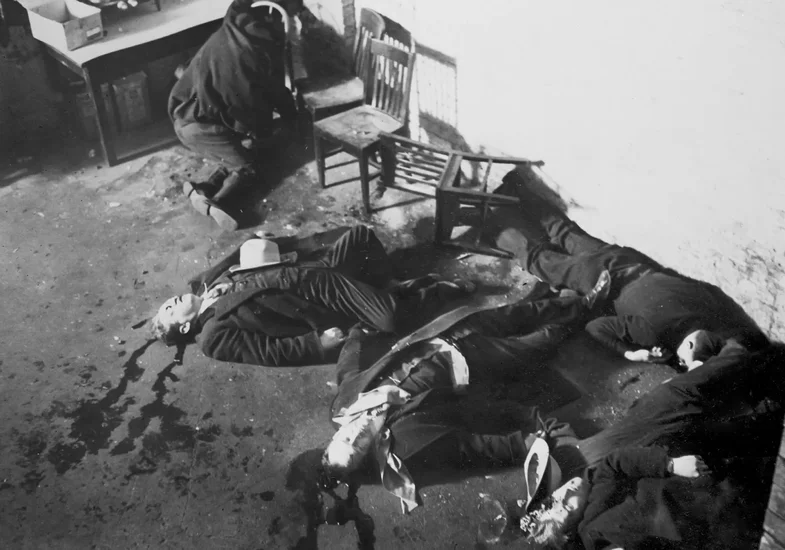
Al Capone’s gang orchestrated the brutal murder of seven rival gangsters in Chicago. The massacre shocked the nation and became synonymous with Prohibition-era violence.
The event captured public imagination and influenced countless books, films, and television programs. The massacre demonstrated organized crime’s ruthless tactics and law enforcement’s challenges.
1989 – Fatwa Issued Against Salman Rushdie
Iranian leader Ayatollah Ruhollah Khomeini issued a fatwa calling for the death of author Salman Rushdie. The religious edict targeted Rushdie for his novel “The Satanic Verses.”
The fatwa sparked global debates about freedom of expression and religious sensitivities. This controversy highlighted tensions between secular artistic freedom and religious fundamentalism.
2005 – YouTube Launched
Three college students launched YouTube, creating the world’s largest video-sharing platform. The website revolutionized how people consume and share multimedia content globally.
YouTube transformed entertainment, education, and communication across the internet. The platform’s success demonstrated the power of user-generated content and social media.
Religious and Social Events on February 14
1920 – League of Women Voters Founded

The League of Women Voters was established in Chicago during the National American Woman Suffrage Association convention. This nonpartisan organization aimed to encourage informed participation in democracy.
The League’s founding occurred six months before the 19th Amendment’s ratification. This timing positioned the organization to help newly enfranchised women navigate their political rights.
1949 – Asbestos Strike Begins
Canadian workers launched the Asbestos Strike, marking the beginning of Quebec’s Quiet Revolution. The strike challenged traditional labor relations and social structures in the province.
The labor action became a catalyst for broader social and political changes in Quebec. The strike’s impact extended far beyond labor rights to encompass cultural and linguistic issues.
1947 – Hungarian Noble Ranks Abolished
Hungary officially abolished all noble ranks and aristocratic titles through new legislation. This democratic reform eliminated centuries-old class distinctions and privileges.
The abolition reflected Hungary’s transition toward modern democratic governance. This change symbolized the rejection of feudal social hierarchies in post-war Europe.
Business and Economic Events on February 14
1924 – IBM Corporation Founded
The Computing-Tabulating-Recording Company officially changed its name to International Business Machines Corporation. This rebranding reflected the company’s expanding technological ambitions.
The name change marked IBM’s evolution from a tabulating machine manufacturer to a technology innovator. This transformation would establish IBM as a global leader in computer technology.
1966 – Australian Currency Decimalized
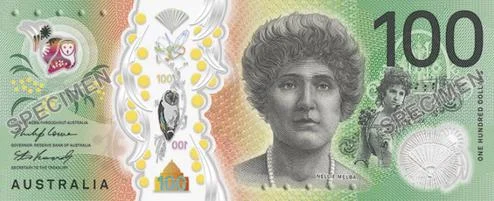
Australia introduced decimal currency, replacing pounds, shillings, and pence with dollars and cents. This modernization simplified financial transactions and aligned with international standards.
The currency change required massive public education campaigns and business system updates. Australia’s successful decimalization became a model for other nations considering similar reforms.
1983 – United American Bank Collapses
United American Bank of Knoxville, Tennessee collapsed in one of the era’s largest banking failures. Bank president Jake Butcher was later convicted of fraud in connection with the collapse.
The bank’s failure revealed widespread financial misconduct and regulatory shortcomings. This collapse contributed to broader banking industry reforms and stricter oversight measures.
1989 – Union Carbide Settlement
Union Carbide Corporation agreed to pay $470 million to the Indian government for damages from the Bhopal disaster. This settlement addressed one of history’s worst industrial accidents.
The agreement provided compensation for victims of the 1984 chemical plant explosion. However, many activists criticized the settlement as inadequate given the disaster’s scope.
Transportation and Infrastructure on February 14
1945 – Prague Mistakenly Bombed
A United States Army Air Forces B-17 squadron accidentally bombed Prague due to navigational errors. The mistake occurred during a mission supporting Soviet operations in Eastern Europe.
The bombing killed civilians and damaged historic buildings in the Czechoslovak capital. This tragic error highlighted the dangers of wartime navigation and communication challenges.
1990 – Indian Airlines Flight 605 Crashes

Indian Airlines Flight 605 crashed during landing in Bangalore, killing 92 people aboard. The accident represented one of India’s deadliest aviation disasters at the time.
The crash prompted investigations into aviation safety procedures and pilot training programs. The tragedy led to improved safety protocols for Indian commercial aviation.
1998 – Cameroon Train Disaster
An oil tanker train collided with a freight train in Yaoundé, Cameroon, spilling fuel across the area. A person scavenging the spilled oil caused a massive explosion that killed 120 people.
The disaster highlighted infrastructure safety challenges in developing nations. The tragedy prompted discussions about railway safety and emergency response capabilities.
Sports and Recreation on February 14
2004 – Moscow Water Park Collapse
The roof of the Transvaal water park collapsed in a Moscow suburb, killing 28 people and injuring 193 others. The structural failure shocked Russia and raised questions about building safety standards.
The collapse occurred during peak usage hours when families were enjoying recreational activities. This tragedy led to stricter building codes and safety inspections for recreational facilities.
2003 – Johnny Longden Dies
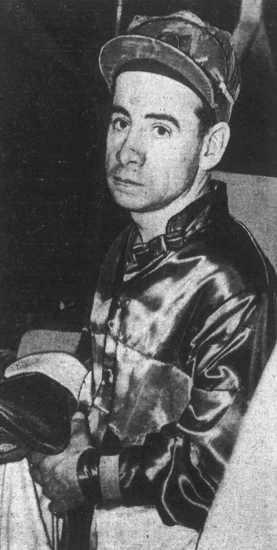
Legendary jockey Johnny Longden passed away at age 96, ending an era in horse racing. Longden had won over 6,000 races during his remarkable career, including the Triple Crown.
Born in England but raised in Canada, Longden became one of America’s greatest jockeys. His career spanned decades and included victories in the Kentucky Derby, Preakness Stakes, and Belmont Stakes.
2004 – Marco Pantani Dies

Italian cyclist Marco Pantani died at age 34, shocking the cycling world. Known as “Il Pirata,” Pantani was one of the few riders to win both the Tour de France and Giro d’Italia.
His death marked the tragic end of a brilliant but troubled career. Pantani’s climbing abilities and charismatic personality had made him one of cycling’s most beloved figures.
Notable Births on February 14
1942 – Michael Bloomberg Born

American businessman and politician Michael Bloomberg was born in Boston, Massachusetts. His entrepreneurial spirit would eventually create one of the world’s largest financial information companies.
Bloomberg’s media empire revolutionized financial data distribution and analysis. His later political career as New York City mayor demonstrated his commitment to public service.
1944 – Carl Bernstein Born

Investigative journalist Carl Bernstein entered the world in Washington, D.C. His childhood in the nation’s capital exposed him to political intrigue from an early age.
Bernstein would later become famous for his Watergate investigation alongside Bob Woodward. Their reporting fundamentally changed American journalism and political accountability.
1947 – Tim Buckley Born

Singer-songwriter Tim Buckley was born in Amsterdam, New York. His early musical talents emerged during his teenage years in Southern California.
Buckley’s innovative vocal techniques and experimental compositions influenced generations of musicians. His brief but impactful career established him as a cult figure in American music.
1955 – Carol Kalish Born

American publisher Carol Kalish was born in New York City. Her passion for comic books would eventually transform the industry’s distribution and marketing.
Kalish revolutionized comic book retail through innovative direct market strategies. Her work at Marvel Comics helped establish the modern comic book industry structure.
1967 – Mark Rutte Born

Dutch politician Mark Rutte was born in The Hague, Netherlands. His early interest in politics and economics shaped his educational and career choices.
Rutte would become the longest-serving Prime Minister in Dutch history. His leadership during multiple crises demonstrated his political acumen and diplomatic skills.
1972 – Rob Thomas Born

American singer-songwriter Rob Thomas was born in Landstuhl, Germany. His family’s military background exposed him to diverse musical influences during his childhood.
Thomas achieved massive success as lead vocalist of Matchbox Twenty. His songwriting talents extended beyond his band to collaborations with numerous acclaimed artists.
1992 – Freddie Highmore Born

English actor Freddie Highmore was born in Camden, London. His early exposure to the entertainment industry through his mother’s work sparked his acting interest.
Highmore’s childhood performances in major films established him as a talented young actor. His transition to adult roles demonstrated remarkable range and maturity.
Notable Deaths on February 14
1975 – P.G. Wodehouse Dies
English novelist and playwright P.G. Wodehouse passed away at age 93 in Southampton, New York. His prolific career spanned over seven decades of literary achievement.
Wodehouse created beloved characters like Jeeves and Wooster that became cultural icons. His wit and humor influenced countless writers and entertained millions of readers worldwide.
1989 – James Bond Dies
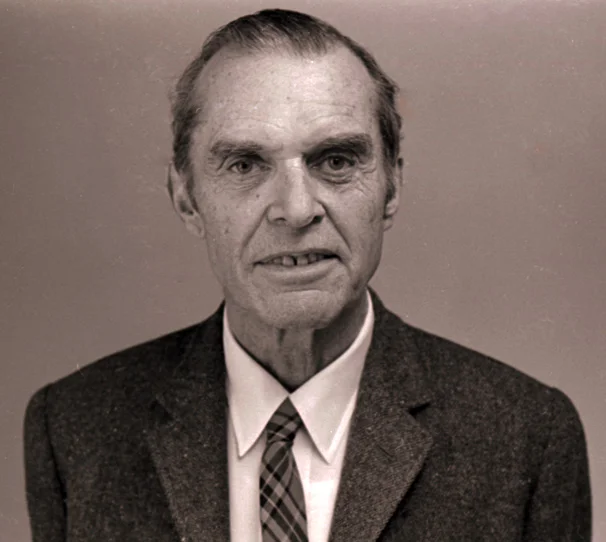
American ornithologist James Bond died at age 89 in Philadelphia, Pennsylvania. His expertise in Caribbean bird species made him a respected figure in scientific circles.
Bond’s name became immortal when author Ian Fleming borrowed it for his fictional spy character. The ornithologist’s legacy extended far beyond his scientific contributions through this literary connection.
2005 – Rafic Hariri Assassinated

Lebanese businessman and politician Rafic Hariri was killed in a massive car bomb explosion in Beirut. The assassination shocked Lebanon and triggered international investigations.
Hariri had served as Prime Minister and was instrumental in Lebanon’s post-war reconstruction. His death destabilized Lebanese politics and intensified regional tensions.
2018 – Morgan Tsvangirai Dies

Zimbabwean politician Morgan Tsvangirai died at age 65 in Johannesburg, South Africa. He had served as Prime Minister of Zimbabwe and led the opposition against Robert Mugabe.
Tsvangirai’s death marked the end of an era in Zimbabwean politics. His struggle for democratic reforms and human rights inspired many across Africa.
2021 – Carlos Menem Dies

Former Argentine President Carlos Menem passed away at age 90 in Buenos Aires. His presidency during the 1990s transformed Argentina’s economy and political landscape.
Menem’s neoliberal economic policies and flamboyant personality defined an era in Argentine history. His legacy remained controversial, with supporters praising modernization and critics citing corruption.
Holidays and Observances on February 14
Valentine’s Day

February 14 marks Valentine’s Day, the annual celebration of love and romance observed worldwide. This holiday honors Saint Valentine, a Christian martyr who became associated with courtly love.
Modern Valentine’s Day traditions include exchanging cards, flowers, and gifts between romantic partners. The holiday has become a significant cultural and commercial celebration across many nations.
Statehood Day in Arizona
Arizona commemorates its admission to the United States as the 48th state on February 14, 1912. This observance celebrates Arizona’s unique history and cultural heritage.
The holiday recognizes Arizona’s journey from territorial status to full statehood. Educational institutions and government offices often hold special programs highlighting state history and achievements.
Saints Cyril and Methodius Day

The Roman Catholic Church honors Saints Cyril and Methodius, patron saints of Europe, on this date. These Byzantine brothers brought Christianity and literacy to Slavic peoples in the 9th century.
Their missionary work included creating the Cyrillic alphabet and translating religious texts. Their legacy continues to influence Eastern European culture and Orthodox Christianity.
